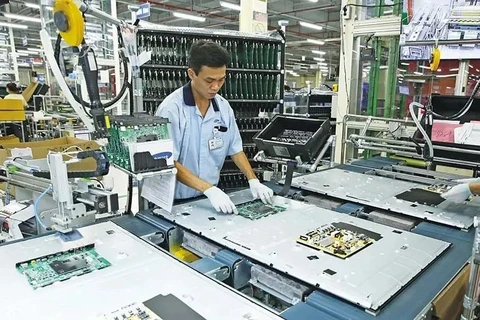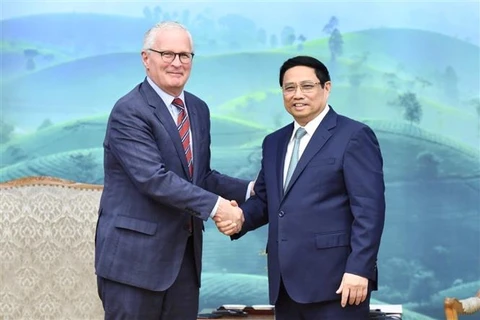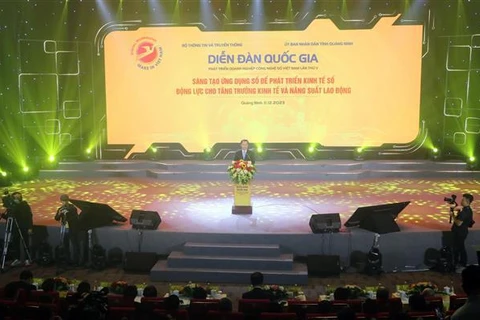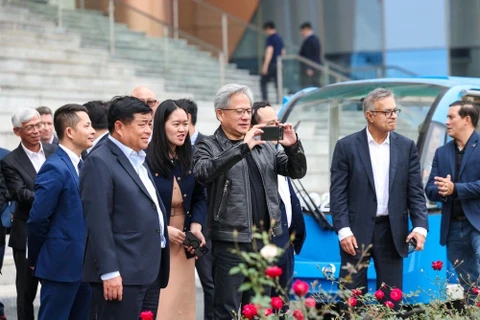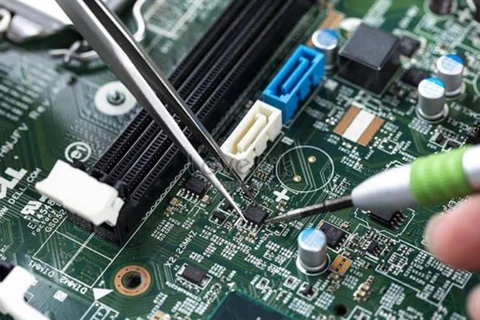Hanoi (VNA) – Vietnam is seeing great opportunities to turn the semiconductor industry into a critical national one in the next 30-50 years.
Minister of Planning and Investment Nguyen Chi Dung said that Vietnam has advantages in developing its semiconductor industry, particularly its human resources.
Jensen Huang, President and CEO of the US chip giant Nvidia, during his recent visit to Vietnam, highly valued Vietnam's potential, great opportunities, and clear strategy, vision and approach, as well as its focus on infrastructure investment in semiconductors and artificial intelligence (AI), and human resources in the spheres.
He said Nvidia wishes to establish a base in Vietnam as it views the Southeast Asian nation its home.
According to the official, Vietnam has a good education system and infrastructure. Once the country’s new generation enters the AI sector and overseas Vietnamese experts return home, Vietnam will have many more advantages.
Nvidia is willing to support Vietnam to increase capacity and infrastructure in AI.
Meanwhile, Vietnam is committed to creating favourable conditions for Nvidia to operate in Vietnam, Dung said, calling on Nvidia to boost semiconductor and AI research and projects in Vietnam.
He proposed Nvidia go together with Vietnam in building incubation for semiconductor enterprises and supporting it to form supporting enterprises.
 Vietnam is seeing great opportunities to turn the semiconductor industry into a critical national sector in the next 30-50 years. (Photo: tapchitaichinh.vn)
Vietnam is seeing great opportunities to turn the semiconductor industry into a critical national sector in the next 30-50 years. (Photo: tapchitaichinh.vn) The global semiconductor industry revenue reached nearly 600 billion USD in 2022. Global chip demand is expected to increase sharply in 2024 and semiconductor chip sales are estimated to reach 1 trillion USD in 2030.
Speaking at the National Forum on Digital Enterprises Development 2023 (VFTE 2023) held early this week, Minister of Information and Communications Nguyen Manh Hung stressed that 2024 will be the first year Vietnam adopts the National Strategy on Semiconductor Industry Growth.
"The semiconductor industry is a foundational sector and, more importantly, a critical national industry for the next 30-50 years," he said.
Developing the semiconductor industry also brings opportunities for Vietnam to reform its electronics industry, especially when it transitions to AI and IoT-enabled electronic devices.
Nguyen Van Khoa, CEO of FPT Corporation, said that from the beginning of this year, major world electronics companies have poured investment into building facilities for hi-tech electronic production in Vietnam.
Vietnam’s semiconductor market is expected to grow by around 6.7% during 2023-28, reaching 1.94 billion USD. The country should focus on design, packaging and testing in the short term, production in the medium term, and mastering core technology in the long term, Khoa suggested./.
